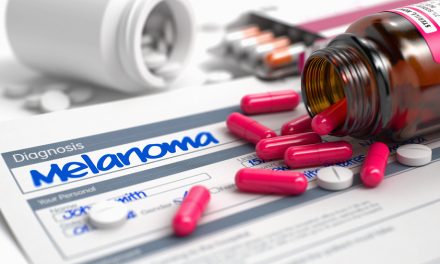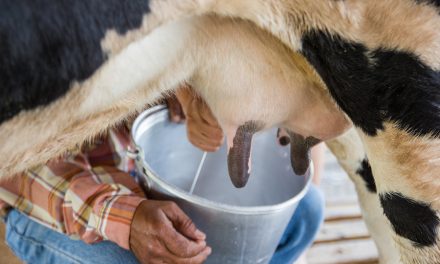Reduction In Cancer Risk With Two Cups Of Coffee Per Day
Coffee has many reported benefits, but the anti-cancer properties are among the most widely studied when it comes to our daily java. Several studies have found ties to lower rates of breast and rectal cancers. Now, US researchers add to the evidence of an inverse relationship between coffee drinking and cancer of the large bowel.
 From fighting free radicals, to improving memory, diabetes, parkinsons, and even reducing cancer risk, there are plenty of studies touting the health benefits of coffee.
From fighting free radicals, to improving memory, diabetes, parkinsons, and even reducing cancer risk, there are plenty of studies touting the health benefits of coffee.
While obesity, smoking and physical inactivity are established risk factors for colorectal cancer, nutritional factors in coffee also play an important role in the development of colorectal cancer.
Previous observational studies have suggested that colon cancer recurrence may be increased in people with relatively high levels of insulin (hyperinsulinemia), and that certain lifestyles including sedentary lifestyle, obesity, and increased dietary glycaemic load may be associated with an increased risk.
Coffee contains antioxidant compounds that contribute to colorectal health and may explain its preventive properties via restriction of colon cancer cell growth.
Caffeic acid is found in coffee, as its name might suggest, however it is chemically unrelated to caffeine and shares none of its stimulant actions in the body. It is a member of a large class of chemicals found in coffee called phenols. Many of these phenols, such as caffeic acid, exhibit modest, dose-dependent anti-oxidant and anti-carcinogenic properties.
Ferulic acid is also an antioxidant which neutralizes free radicals and may prevent oxidative damage to our bodies. The acid is also a potent anti-inflammatory that is capable of significantly reducing brain inflammation.
Melanoidins generated during the coffee roasting process are thought to encourage colon mobility.
Diterpenes may inhibit cancer by enhancing the body’s defence against oxidative damage.
Method
Researchers at the University of Southern California Norris Comprehensive Cancer Center began by looking at 5,100 men and women, who had been diagnosed with colorectal cancer within the past six months.
They also looked at 4,000 men and women with no history of colorectal cancer as the control group.
Subjects reported their daily consumption of boiled (espresso), instant, decaffeinated and filtered coffee, as well as their total consumption of other liquids.
A questionnaire gathered information about many other factors that influence the risk of colorectal cancer, including family history of cancer, diet, physical activity and smoking.
Results showed that even moderate coffee consumption, between one to two servings a day, was associated with a 26% reduction in the odds of developing colorectal cancer after adjusting for known risk factors.
In addition, the risk of developing colorectal cancer continued to decrease to up to 50% when participants drank more than 2.5 servings of coffee each day. The indication of decreased risk was seen across all types of coffee, both caffeinated and decaffeinated.
Caffeine insignificant?
Decreased risk was seen across all types of coffee, both caffeinated and decaffeinated.
“We were somewhat surprised to see that caffeine did not seem to matter,” said Dr Stephen Gruber, director of the USC Norris Comprehensive Cancer Center and senior author of the study.
“This indicates that caffeine alone is not responsible for coffee’s protective properties.”
The mechanism of the possible protection of coffee against large bowel cancer is not well understood. It has been interpreted in terms of the antioxidant, antimutagenic and anticarcinogenic effects by coffee’s complicated compounds.
Coffee contains phenolic compounds such as chlorogenic, caffeic and cumaric acids, melanoidins and diterpenes (such as cafestol and kahweol), which have been confirmed to eliminate several carcinogens and reduce the oxidant effect of polycyclic aromatic hydrocarbons.
“The levels of beneficial compounds per serving of coffee vary depending on the bean, roast and brewing method,” said first author Dr Stephanie Schmit.
“The good news is that our data presents a decreased risk of colorectal cancer regardless of what flavour or form of coffee you prefer.”
Previous studies have identified a selection of lifestyle choices that participants who drank decaffeinated coffee practiced.
These individuals tended to consume less alcohol, fewer calories, and less red meat; eat more fruit and vegetables; exercise less; and smoke more than did participants who primarily drank caffeinated coffee.
Why It’s Important To Select Only Organic Coffee
The coffee plant is one of the most heavily sprayed crops. It’s coated with chemicals, pesticides, and herbicides, nothing you’d want to be ingesting. These chemicals then leech into the ground water and make people sick in local areas where coffee is grown.
Even though many chemicals that have been found to be harmful to the environment have been banned or are strictly regulated in the U.S. or Europe, they remain legal to use in less-developed countries, including many countries that grow coffee.
Endosulfan, chlorpyrifos, diazinon, disulfoton, methyl parathion, triadimefon, and cypermethrin and a few of many chemicals and pesticides used to grow coffee all over the world.
Coffee should be brewed within 4-6 weeks after roasting. The industry standard shelf life is 1 year. Over 70% of coffee importers do not follow these protocols far exceeding the time range for sales and stock.
Organic coffee is one of the choices you could resort to especially if you are searching for high quality and the best coffee blends. This is fast becoming a favorite among coffee aficionados because of its high end and awesome taste and aroma. Moreover, coffee lovers who are health conscious at the same time find this coffee choice the most remarkable one.
There are renowned coffee beans and brands for organic java which are trusted by countless coffee lovers around the world. Green Mountain: Fair Trade Organic, Sprouts Farmers Market and Tom Thumb (Safeway): O Organics European Blend are just few of the brands established in the market today.
The best way to help our migratory birds is to purchase certified Bird Friendly coffees. Rather than being grown on land that has been cleared of all other vegetation, Bird Friendly coffees are planted under a canopy of trees that provide habitat for birds. In addition to being shade grown, Bird Friendly coffees are also organic, meaning they’re grown without the use of chemical pesticides, herbicides, and fertilizers that poison the environment. See what Kenn Kaufman says about Bird Friendly Coffee on his blog.
The Rainforest Alliance has a broad social and ecological mandate that spans many sectors including agriculture. Coffee is one of the agricultural crops targeted by Rainforest Alliance programs. The coffee certification program is aimed at ensuring that coffee workers are paid fairly, treated with respect and that the crop they tend does not contribute to soil erosion, water contamination and forest destruction: the Rainforest Alliance seal means that both social and environmental values are respected.
Other Benefits of Coffee
Blood pressure. True, a cup of coffee can temporarily kick up your blood pressure. But results from long-term studies are showing that coffee may not increase the risk for high blood pressure over time, as previously thought. It’s possible that people develop a tolerance to coffee’s hypertensive effects after a while. People who drink a cup of caffeinated coffee had a 30 percent increase in blood flow over a 75-minute period compared to those who drank decaffeinated coffee.
Cholesterol. Two substances in coffee — kahweol and cafestol — raise cholesterol levels. Paper filters capture these substances, but that doesn’t help the many people who now drink non-filtered coffee drinks, such as lattes. Researchers have also found a link between cholesterol increases and decaffeinated coffee, possibly because of the type of bean used to make certain decaffeinated coffees.
Diabetes. Heavy coffee drinkers may be half as likely to get diabetes as light drinkers or nondrinkers. Coffee may contain ingredients that lower blood sugar. A coffee habit may also increase your resting metabolism rate, which could help keep diabetes at bay.
Gallstones. Coffee drinkers are less likely to suffer symptomatic gallstone disease, possibly because coffee alters the cholesterol content of the bile produced by the liver.
Parkinson’s disease. Coffee seems to protect men but not women against Parkinson’s disease. One possible explanation for the sex difference may be that estrogen and caffeine need the same enzymes to be metabolized, and estrogen captures those enzymes.
*Article originally appeared at Prevent Disease.












